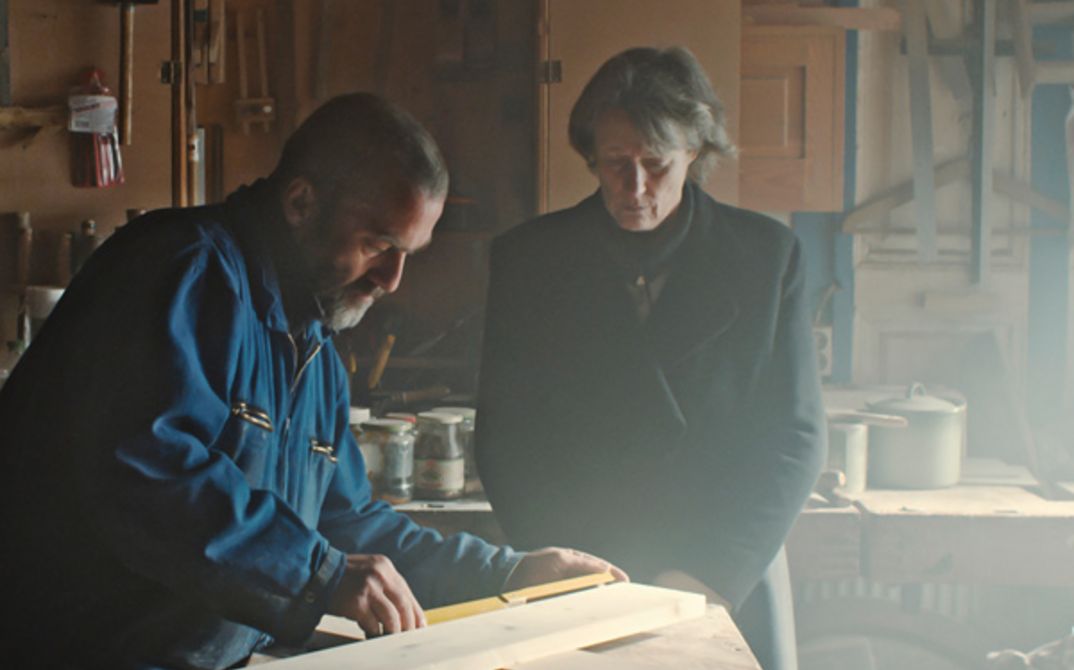103 min. German.
Two broken souls meet by chance in the countryside. A man and a woman, neither of them young anymore, both saddled with great disappointments. They understand one another, even without the need for many words, each providing the other with support and solace for this brief section of life’s journey which they share.
Cinema has taken many different roads to tell stories of despair, pain, grief and loneliness. Yet this film forges its own unique path. It leads from an abandoned carpenter’s workshop via a run-down old house to a port. The pace is sedate, the whole area deserted. A bottle of schnapps, a bouquet of gladioli, a few apples and potatoes, a photograph, a suitcase and a book of Russian poems – these are the only props needed for the minimalist plot. The man constructs a wooden cross at one point and it’s just one of many scenes showing hands at work. With striking images of huge intensity and occasional bursts of percussion on the soundtrack, an intimate drama unfolds which is pared down but still full of emotion, a rumination on where we come from and where we are headed. (Birgit Kohler)
Ludwig Wüst was born in Vilseck, Germany in 1965. From 1984 to 1986, he trained as a cabinetmaker. Since 1987, Ludwig Wüst has lived in Vienna, where he trained as an actor and singer at the University of Music and Performing Arts. Since 1990, he has worked as a theatre director, writer and actor, and since 1999 as a filmmaker.
